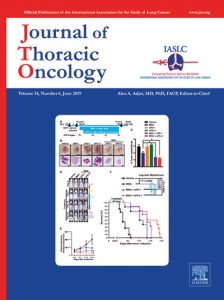Posted: November 15, 2019
As a rare orphan disease, mesothelioma research has been slowed by a lack of eligible patients for trials and by a dearth of resources. Because of these hurdles, agreement among oncologists and researchers in the field regarding strategic priorities is necessary. The IASLC 2018 Mesothelioma Meeting held this past July in New York City laid the groundwork for a more strategic approach to this disease by bringing together the world’s experts as well as motivated early-career researchers to discuss novel data and bridge gaps in collaborative research.
Anne Tsao, MD, a co-chair of the meeting, noted that the success of this first meeting could be deduced by the engagement of experts from most major centers throughout the world.
“It was so inspiring to see the number of highly committed and enthusiastic investigators who participated in the meeting to help further mesothelioma research,” she said. “I think we hit the mark by establishing international collaborations and by our agreeing on which trials would likely have the biggest impact for our patients.”
Just as with other solid tumor types, immunotherapies are of great interest in mesothelioma research. The immunerefractory space is also an area of extensive discussion and focus, as is the natural biology of this disease. Because chromothripsis—a clustered presence of a high number of chromosomal rearrangements—is often present in mesothelioma, the genetics of this disease are totally unique.
This inaugural meeting discussed novel research in all of these areas including the collection of biomarkers through “window of opportunity” neoadjuvant trials in the early-stage setting as well as early data on the efficacy of specific immunotherapeutic agents in combination with chemotherapy for unresectable disease in the first-line setting. Strategic frameworks were also laid regarding approaches to antiangiogenic therapies, some of which, such as VEGF-R TKIs have not been proven efficacious in phase III trials, and some of which, such as bevacizumab, should not be ruled out.
“The way to generate progress is to personalize the disease.” –Dr. Anne Tsao
“The way to generate progress is to personalize the disease,” Dr. Tsao told Jack West, MD, in the IASLC Podcast “Lung Cancer Considered.” “Because of the rapid pace of science and technology, I’m hoping that we will be seeing new treatments based on improved understanding of the biology of this disease and will not be treating patients according to an algorithm.”
For more about the state of mesothelioma patient care, listen to the full Lung Cancer Considered podcast. ✦
Exploring Possibilities in Mesothelioma
 As Dr. Tsao mentioned, little is known about the biology and mechanisms of action of mesothelioma. For an expert perspective on the role of chromothripsis in the angiogenesis of this tumor type, read the online editorial in the Journal of Thoracic Oncology by Dr. Michele Carbone and colleagues: Does Chromothripsis Make Mesothelioma an Immunogenic Cancer?
As Dr. Tsao mentioned, little is known about the biology and mechanisms of action of mesothelioma. For an expert perspective on the role of chromothripsis in the angiogenesis of this tumor type, read the online editorial in the Journal of Thoracic Oncology by Dr. Michele Carbone and colleagues: Does Chromothripsis Make Mesothelioma an Immunogenic Cancer?











